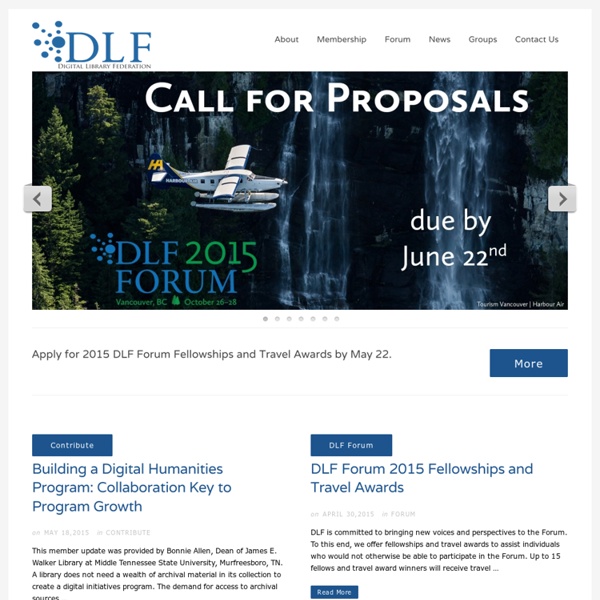



Library Technology Guides: Documents, Databases, News, and Commentary THE SYSTEMS LIBRARIAN - Library Technology Forecast for 2015 and Beyond THE SYSTEMS LIBRARIAN Library Technology Forecast for 2015 and Beyond by Marshall Breeding With another year winding down, we’re pausing to review some of the accomplishments with technology in libraries and consider what might be in store. Each year seems to bring an accelerating pace of change. Relentless Consolidation In 2014, the library-technology industry saw another phase of consolidation. One component of the change relates to the increased involvement of private equity firms as they gain ownership of companies from the individuals or families that originally founded them. Through these previous rounds of consolidation, the strategic products and technologies used by libraries remain under the control of fewer companies of larger size and capacity. Looking into the next year or two, I anticipate that the consolidation of the industry will continue. However, it is inevitable that the industry will be dominated by a shrinking tier of very large corporations. Mobile
100 Search Engines For Academic Research Bestseller All Video On Demand: Rent or Buy Clothing & Accessories Major Appliances Arts, Crafts & Sewing Automotive Baby & Nursery Beauty & Grooming Books & Textbooks Collectible Coins Camera & Photo Cell Phones & Accessories Classical Music Computers, Tablets & Components Blu-Ray & DVD Electronic Components & Home Audio Entertainment Collectibles Video Games Other Gift Card Brands Grocery & Gourmet Food Patio, Lawn & Garden Health & Household Business & Industrial Supplies Jewelry Kindle Store Kitchen & Dining Magazines Miscellaneous Digital Music CDs & Vinyl Musical Instruments Office & School Supplies Pet Food & Supplies Shoes, Handbags, Wallets, Sunglasses Software Sports Collectibles Sports & Fitness Home Improvement Toys & Games Watches by TeachThught Staff General Need to get started with a more broad search? ResearchGate Access over 135 million publication pages and stay up to date with what’s happening in most professional fields. RefSeek Digital Library of the Commons Repository Microsoft Academic Search Google Trends Jurn
Technology Tips and Tools
The purpose of CLIR’s Digital Library Federation program is to build and support a robust, engaged community whose members share a vested interest in advancing digital libraries. To this end, DLF serves as a resource and catalyst for collaboration among digital library developers, project managers, and all who are invested in digital library issues. by feillet Oct 12